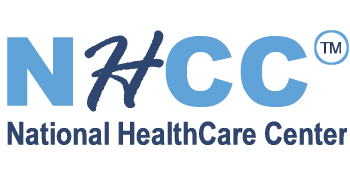ALL ABOUT ACNE: ACNE TREATMENT
 If you have mild to moderate acne, this is the treatment for you. It’s important to apply topical treatments to the entire face to prevent new breakouts (not just in problem areas). It’s possible to get rid of blackheads, whiteheads, and clogged pores with some treatments. Acne-causing bacteria can be reduced by using other products. Blemishes will also appear less red with some products. Antibiotics like dapsone, clindamycin or sodium sulfacetamide can also be found in these acne treatments. Many do not require a prescription, but your dermatologist can help you determine which ones do. Treatment for moderate to severe acne with this medication, also known as “systemic treatment,” is effective. Antibiotics such as minocycline, doxycycline, tetracycline, or another medicine may be prescribed to you. Using these antibiotics, acne that covers a large portion of the body can be effectively treated. Acne-prone women who take estrogen- or spironolactone-containing birth control pills report improvement in their skin. Consult with your dermatologist to see if this is an option that is right for you.
If you have mild to moderate acne, this is the treatment for you. It’s important to apply topical treatments to the entire face to prevent new breakouts (not just in problem areas). It’s possible to get rid of blackheads, whiteheads, and clogged pores with some treatments. Acne-causing bacteria can be reduced by using other products. Blemishes will also appear less red with some products. Antibiotics like dapsone, clindamycin or sodium sulfacetamide can also be found in these acne treatments. Many do not require a prescription, but your dermatologist can help you determine which ones do. Treatment for moderate to severe acne with this medication, also known as “systemic treatment,” is effective. Antibiotics such as minocycline, doxycycline, tetracycline, or another medicine may be prescribed to you. Using these antibiotics, acne that covers a large portion of the body can be effectively treated. Acne-prone women who take estrogen- or spironolactone-containing birth control pills report improvement in their skin. Consult with your dermatologist to see if this is an option that is right for you.
Deep cysts and nodules, which can be extremely painful, are rarely affected by most acne treatments. Isotretinoin may be an option if other treatments fail. Severe acne can only be treated with this drug, which has been approved by the US Food and Drug Administration. Isotretinoin treatment will help about 85% of acne patients after a single course of treatment (4 to 6 months).
Not everyone responds well to isotretinoin. Pregnant women should not take this medication. Even if the medication is only taken for a short period of time, the risk of a baby developing birth defects is high. In order to avoid getting pregnant, women who are at risk must adhere to a rigid set of guidelines. Fortunately, isotretinoin has no effect on subsequent pregnancies.
We require that all patients, male and female, participate in a program called iPLEDGE before they can begin taking isotretinoin because of the high risk of birth defects. For the purpose of figuring out whether or not educating people about the dangers of taking isotretinoin can help prevent birth defects, this program tracks the medical data of people taking the drug anonymously. Make sure to tell your dermatologist about any possible side effects if you decide to take this medicine. They’ll be watching you like hawks.
HOW TO CARE FOR YOUR SKIN
In order to get rid of acne, you’ll need more than just soap and water. Skin care regimens developed by dermatologists can help prevent breakouts. Here are a few pointers from the pros to help you succeed:
- Be gentle! Avoid products that feel rough on your skin, like harsh exfoliators or heavily perfumed soaps.
- Wash your face twice a day and after sweating. Excessive washing or scrubbing will not help your acne. In fact, it can make it worse.
- Don’t touch your face! Do not pop, squeeze, or pick at your acne.
- Look for the term “non-comedogenic” or “non-acnegenic” on cosmetic or sunscreen products. You may also see the phrases “won’t cause acne” or “won’t clog pores.” These types of products should not irritate your skin.
- Tanning will not “treat” your acne. In fact, it damages your skin and will not dry out your acne. Some acne medications can make the skin very sensitive to UV light, which can worsen your acne.
Numerous studies have suggested a connection between diet and acne. Acne is being studied as a possible side effect of certain foods and beverages, such as milk. Acne may be worsened by foods that raise blood sugar levels, such as white bread. Smoking has been shown to worsen acne in studies.
Acne scarring can be treated by a dermatologist once the condition is under control. Microdermabrasion, chemical peels, fillers, lasers, and other procedures can all help minimize the visibility of scars. The best results often come from a treatment plan that is specifically tailored to the patient’s needs, just as with active acne.
How Do You Know Which Acne Treatment is Best for You?
A common skin condition, acne affects about 80% of people in their teens and early twenties and can last into their thirties and forties. Acne treatments are available over the counter and on the prescription market, as well as in the form of home remedies, and it can be difficult and expensive to choose the best one for you.
To help you focus your search, we’ve outlined the following steps:
The First Step Is to Become Informed
Understanding your skin type can help you find products or describe your skin to a dermatologist more accurately. Acne types must be identified before you can select an appropriate acne treatment. Cystic acne is distinct from other forms of acne, such as blackheads and whiteheads. What kind of acne you have will help you choose the best acne treatment for your situation. There are many different types. This includes understanding how different treatments, like benzoyl peroxide or salicylic acid, affect different skin types and how they interact with each other. The flaky skin may be worsened by some treatments that are more drying!
Step Two: Discover Your Skin’s Secrets
It’s critical to monitor your skin’s progress, whether you decide to try different acne treatments at home or consult a dermatologist. Write down what you eat, how much exercise you get, and how many times you wash your face in a daily diary. The most important thing to keep track of is how your skin reacts to the products you’re using on it. A dermatologist may be able to use this information to help you choose the best treatment for your skin, even if you don’t have the expertise to do so yourself.
Three: Visit a Dermatologist
In the end, seeing an expert is the most efficient way to figure out the best treatment for your acne. You will be able to better communicate with your dermatologist if you have a good understanding of acne and its treatment options, as well as an understanding of your skin’s condition. Trying every acne remedy in the book is a waste of time, as dermatologists have spent years studying skin. Please contact us for a consultation if you are ready to take the next step in your acne treatment. We’re here if you need us.

